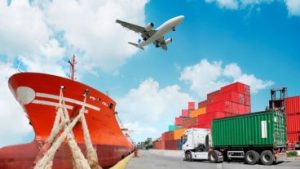Definition/Scope
Customs brokers are defined in the Revised Kyoto Convention (RKC) as «third parties» in the meaning of any person who deals directly with the Customs, for and on behalf of another person, relating to the importation, exportation, movement or storage of goods.
Problem statement
Use of the services of a specialized agent or Customs broker for the sometimes complex clearance formalities is a fully legitimate and useful business decision. Many countries, however, maintain regulations that require importers and exporters to engage a professional and licensed Customs broker when dealing with Customs matters. Customs administrations explain this regulation by the need to improve compliance. However, such obligatory use of agents and brokers increases the cost of trading, and the requirement to only use licensed brokers limits competition in this business sector.
Implementation guidance
As stipulated by Standard 8.1 of the Revised Kyoto Convention, importers, exporters and any other person concerned shall have the choice of either transacting business with the Customs directly or of designating a third party to act on their behalf. This freedom of choice will lead to a healthy business environment where competition will result in fair service charges, which will help reduce the cost of trading internationally. According to Standard 8.3, persons who decide to manage their own Customs business shall not be treated less favourably than those represented by an agent or Customs broker.
Customs can determine the conditions under which a person can act as an agent or broker, however the conditions have to be specified by national law, not simply by Customs circulars. The conditions can include, for example, age, education, established business address, professional competence, etc. Customs may choose to require brokers to pass an official examination prior to registration. In this and all other cases, Customs should cooperate with Chambers of Commerce and other relevant industry associations to provide training in Customs matters.
Additional information (references, examples, etc.)
The Guidelines to Chapter 8 «relationship between the Customs and third parties» of the RKC provide relevant guidance for adapting national Customs regulations accordingly. The ICC Customs Guideline # 12 present insightful business perspectives on this trade facilitation measure.
What is a Customs broker?
Customs brokers are private individuals, partnerships, associations or corporationslicensed, regulated and empowered by U.S. Customs and Border Protection (CBP) to assist importers and exporters in meeting Federal requirements governing imports and exports. Brokers submit necessary information and appropriate payments to CBP on behalf of their clients and charge them a fee for this service.
Brokers must have expertise in the entry procedures, admissibility requirements, classification, valuation, and the rates of duty and applicable taxes and fees for imported merchandise.
There are approximately 11,000 active licensed Customs brokers in the United States.





